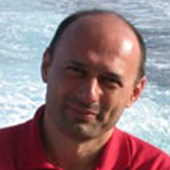
Dr Paolo D’Iorio

Philosopher by training (PhD at the Scuola Normale Superiore in Pisa, Habilitation a Diriger des Recherches at the University of Nice), since 1998 Paolo has had a tenured position at the Institut des textes et manuscrits modernes (CNRS / ENS, Paris). In the last years he has been director of the HyperNietzsche project at the University of Munich as Sofja Kovaleswkaja prize-winner of the Humboldt foundation and is currently associate researcher at the Maison Francaise d’Oxford. He is Director of two major European research projects whose common goal is to establish a reliable, efficient and sustainable infrastructure for humanities scholarship on the Internet: the COST Action Open Scholarly Communities on the Web, and the eContentplus project called Discovery (Digital semantic corpora for virtual research in philosophy).
He works in two distinct fields: (1) the study of Friedrich Nietzsche’s philosophy using methods of genetic criticism (critique genetique); (2) an enquiry into the conditions necessary for conducting scholarship on the Web, accompanied by the design and implementation of digital infrastructures for scholarship in the Humanities.
(1) His work on Nietzsche includes publications on the concept of eternal return in both its philosophical and cosmological aspects, on the significance of pre-Platonic philosophy for Nietzsche’s thought, and on the textual history, interpretation, and impact of the posthumously published and unauthorized book ‘The Will to Power’.
(2) While originally engaging with digital technology for the purpose of enhancing the study of manuscripts and realising new form of critical editions, his work in this area now applies to many aspects of humanities scholarship. He has been particularly interested – both on a theoretical level and on a practical level – in investigating how scholarly communities are influenced and may be transformed by new technological developments and how the web must be transformed in order to support academic research.
Modern philosophy, genetic criticism, critical editions, collaborative networked research, digital libraries and archives, Open Source in the humanities, Semantic Web.